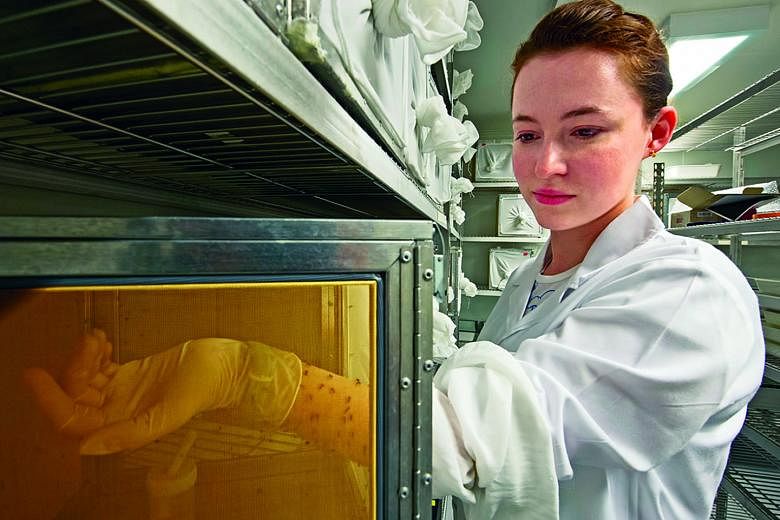In the small city of Townsville in northern Australia, thousands of residents have begun breeding mosquitoes in their homes as part of an unusual disease-fighting experiment.
The insects are being bred to assist with ground-breaking research aimed at ending global outbreaks of dengue fever and the Zika virus.
Conducted by researchers from the Eliminate Dengue project based at Melbourne's Monash University, the experiment involves Townsville residents breeding and hatching "infected" mosquitoes.
The mosquitoes have been specially bred to carry Wolbachia - a naturally occurring bacterium which has been shown to prevent the insects from transmitting various viruses, including dengue and Zika.
The infected mosquitoes pass the Wolbachia to offspring so that entire mosquito populations can be quickly overtaken by those which do not transfer viruses.
"We have not seen any local transmission of dengue in any field sites where we have established Wolbachia," Dr Andrew Turley, from Eliminate Dengue, told The Straits Times. The project, which has conducted trials in Australia, Indonesia, Vietnam, Colombia and Brazil, has found that the spreading of Wolbachia-infected mosquitoes could help to protect entire neighbourhoods from virus outbreaks within just three to six months.
The researchers believe it could eventually be possible to conduct large-scale distribution of Wolbachia mosquitoes for just US$1 (S$1.35) per person.
But one of the problems facing the researchers is how to spread Wolbachia mosquitoes quickly across entire cities and countries.
Singapore has been studying the release of male mosquitoes made sterile by the introduction of Wolbachia. Mr Masagos Zulkifli, Minister for the Environment and Water Resources, said in January that his ministry is putting aside $3 million for the next three years to develop this "novel method of suppressing the Aedes mosquito population".
Participants in the Townsville experiment have been given a "mozzie box", which includes about 100 mosquito eggs as well as food. The box is filled with water and placed in a shady spot in the home and then replaced every two weeks by a new box provided by the researchers.
"Mosquitoes live and breed around our homes," the mayor of Townsville, Ms Jenny Hill, told The Townsville Bulletin in February. "They are a threat to every person in every suburb in Townsville."
Dr Turley, an expert in medical entomology, said about 4,000 households in the northern Queensland city of 170,000 people had been breeding the mosquitoes since last month. Another 2,000 have registered to participate. By the end of the year, the trial hopes to have covered an area of about 90,000 people.
"So far the results are looking encouraging, but it is too early to tell," Dr Turley said.
A trial in Yogyakarta has been conducted since 2014 and has shown promising results.

